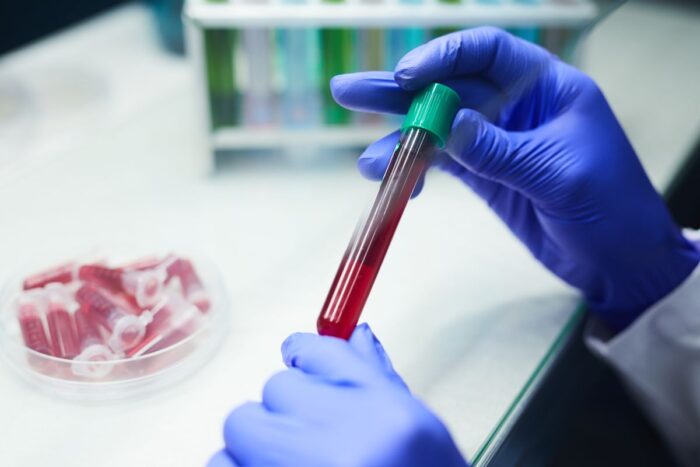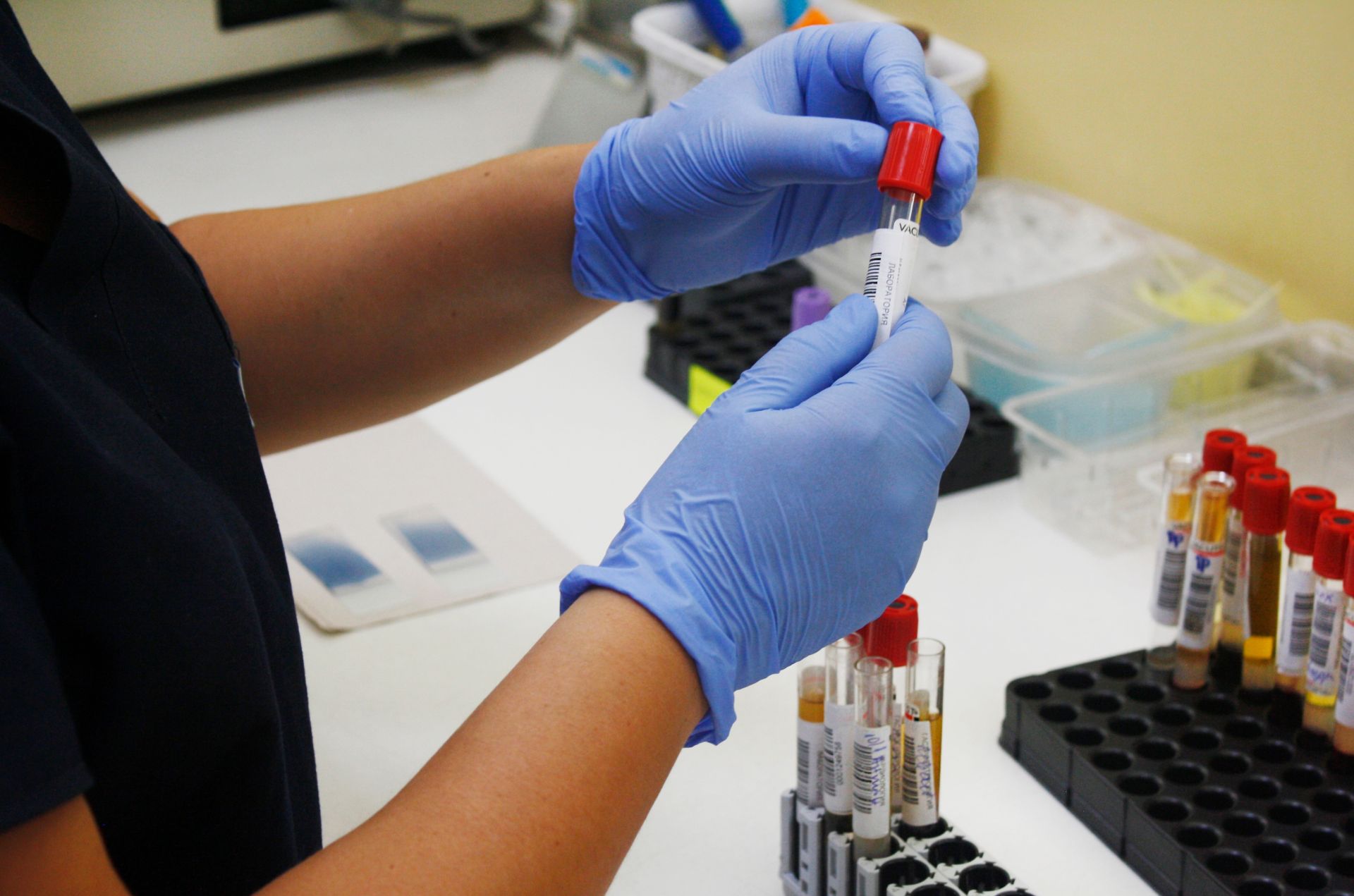Key Takeaways:
- Normal blood test results do not necessarily rule out the presence of fatty liver disease.
- The diagnosis of fatty liver disease requires tests such as ultrasound, CT scan, or MRI.
- Also, a FibroScan test can indicate the severity of the condition non-invasively.
- High cholesterol, triglycerides, and AST and ALT levels don’t automatically indicate a fatty liver disease, just as normal levels don’t rule it out.
- Being overweight is a significant risk factor for fatty liver disease, prompting the need for regular checks.
Before I was diagnosed with a fatty liver, I did various blood tests recommended by the doctor because I wasn’t feeling well. All sorts of tests.
They all came back normal or at least nothing there showed signs of extreme worry: my cholesterol was indeed at the top limit, but still not in the red.
So was my glucose. ALT, AST and everything else was looking normal and my doctor had no idea what was causing my feeling bad.
Eventually, after getting an ultrasound done and later on a Fibroscan, I was diagnosed with a fatty liver disease.
All while my blood tests showed normal results. How is this even possible? We’re going to talk about this in today’s article!
Can you have a fatty liver with normal blood test results?

Yes, you can still have a fatty liver disease even if your blood test results look good. If there are reasons to suspect that you might have a fatty liver (read about the symptoms here), you should run more in-depth tests.
The only way to diagnose it with 100% certainty is by running an ultrasound, a CT scan or a MRI.
If you want to know exactly how severe it is, you can go for a liver biopsy or a pretty expensive blood test (called FibroMax or Fibroscan) which is also accepted generally as an indicator.
The FibroMax was the way I went, because it was a non-invasive procedure. Also, my doctor estimated by the looks of the ultrasound that it wasn’t very bad and recommended it instead of the biopsy.
However, you don’t really need to either the liver biopsy or the FibroMax test unless your doctor really recommends getting the extra work done, as they are really good nowadays when it comes to guessing the severity of your fatty liver looking at the ultrasound results alone.
But one thing is clear: blood work alone is not enough to tell you if you have a fatty liver disease or not!

My blood tests were normal before I was diagnosed and even though they did improve when I finally reversed my condition, it was the ultrasound that actually spotted my fatty liver.
I’m not the only one in this situation. Over the years, I talked with hundreds of people who were diagnosed with NAFLD and a part of them (although not the majority) also had normal blood test results.
It is true, most of the people suffering from a Fatty Liver don’t have normal blood test results – and they usually have high levels of cholesterol and triglycerides, as well as AST and ALT numbers.
However, these high levels don’t automatically mean that you have a Fatty Liver either, just as well as normal blood tests don’t necessarily rule it out.
As it was my case: I was apparently healthy, but fortunately further tests were done and my fatty liver was found, allowing me to make the lifestyle changes required to reverse it.
If you’re starting your journey of reversing yours and you’re overwhelmed with all the healthy food options that you have to buy, you can check out my handy monthly shopping list for fatty liver, which will make it a lot easier for you in this regard, at least.
When should you get an ultrasound done for fatty liver?

Now, I wouldn’t suggest anyone to get an abdominal ultrasound just because their blood tests are normal.
Of course, if that’s the case, this most likely means that you are well and healthy!
But if you have any of the symptoms of a fatty liver disease and especially if you don’t find anything else to relate them to – or if your doctor recommends it – definitely get an ultrasound done!
It is painless and fast and it tells you accurately if you have a fatty liver or not.
Don’t let it be too late because the sooner you catch a fatty liver, the easier it is for you to reverse it! It took me 1.5 years to do it, but others have done it in under an year, following a clean diet for NAFLD.
Being overweight should also ring the alarm and you should regularly get an ultrasound if you are overweight, as this is one of the main risk factors for a fatty liver.
I was 210 pounds when the fatty liver was discovered (pretty much for a 6 foot man), and I had been there for years.
So if there’s fat on your belly, you might have fat in your liver too and it’s better to be safe than sorry.
It’s worth mentioning that not all overweight people automatically have a fatty liver, just as thin and fit people aren’t guaranteed not to have it, unfortunately.
But usually, most of the people diagnosed with a fatty liver are at least overweight if not obese or more.
So keep an eye on your symptoms (from more common ones to itching), your weight and way of living, but also on heredity (did other people in your family have liver-related problems?) and potential medication you’re taking.
With all these in mind and with your blood tests done (they still need to be done, even if they are not a sure-fire way to get diagnosed), talk to your doctor and see what other tests have to be made to properly diagnose you.
Wrapping up
In conclusion, you can still have a fatty liver even if your blood test results come back normal.
They usually won’t when you’re suffering from NAFLD, but it’s not uncommon for them to look good and you to still have it.
Therefore, if you or your doctor suspect a fatty liver, an ultrasound is the easiest way to tell if indeed you’re dealing with one or not. Alternately, you can go for a CT scan or a MRI.

I was diagnosed with a fatty liver back in 2014 and managed to reverse it by mid-2015. Since then, I’ve been studying it, continuously updating my knowledge with the latest scientific findings and practical approaches to give others the help they need to reverse their condition.
My approach to managing fatty liver is holistic, balancing scientifically-backed information with real-life, practical advice based on personal, direct experience.
I am also the admin of the Fatty Liver Support Group on Facebook and the Fatty Liver Subreddit.


This blog changed my life – Thank you Lynn for your selfless contribution to society and not having people pay even a cent for help! That truly says something about you and your character. I know you are being blessed in helping all of us help ourselves through this scary and uncertain experience. Your experience gave me hope when doctors and hours of web searches and articles couldn’t answer my questions. With your blog and prayer I was able to navigate and lose 40 lbs after 5 pregnancies and 3 of which I had gestational diabetes – 2 I was able to keep at bay through diet and exercise but the last one I had to use insulin injections. And then prior to my 2017 ER experience and diagnosis I had been having right side under the rib cage pain for 3 years!! I went to the doctor a couple times and they just thought it was ulcers etc. The sever pain would knock me to the floor and I would be laying there for 30 mins to 1 hour and that’s when I had had enough. The pain just kept getting worse.
I can’t thank you enough. I have been pain free for 2 years and am living the mediterranean lifestyle. No alcohol hardly any sugar, low carbs and lots of exercise. I hope others can find strength through my post as I have through yours….well we gain much more from your posts but just know they are not alone! You can beat it and reverse it.
Marilee, it felt so good to read your comment – I am so happy to see that my hard work here is actually helping people reverse their condition and get their lives back. Reading what I have to say is just part of the whole: actually changing your diet and lifestyle is the biggest challenge and I am happy to hear not only that you managed to do this, but it also helped you reversed your fatty liver. Keep it up!
Thanks for the info! I was recently disgnosed as well.
I was looking for cause of abdominal and pelvic pain by getting a ct scan. The radiologist MD saw the fatty liver. I then got asked to take blood tests. I have blood tests which show everything is fine. They did not test for cholesterol or triglycerides.
Ultrasound shows I have liver enlargement and my blood test are normal I don’t have pain but I have abdominal swelling when I eat food no alcohol or smoking but I drink coffee with sugar or tea 3 or 4 times a day so I don’t exercise.
I just wanted to thank you for this information and for sharing your experience. I’ve had stomach problems going back at least 10 years and always just accepted that this is how my body is.
Flash forward to 2021 and I finally started seeking help again thanks to my fiancé who empowered me to advocate for myself. After waiting a year for an EGD that didn’t give many answers, my provider ordered an ultrasound to check for gallstones.
They noted in the ultrasound that I showed fatty liver but when I followed up with my provider she said it was nothing because my liver enzymes (taken about 2 weeks before) are normal. I’m not one to overly worry about things but I’m a Hispanic female with a family history of liver disease and diabetes.
I’m 32 and could always be better with my diet but I don’t drink, or smoke, I do cardio 3-4 times a week along with weight training, I generally follow a pescatarian diet, I’m very conscious of not overdoing it with sugar and other fats.
To me, the fact that my numbers are normal but it’s visible on the ultrasound and I’m a reasonably healthy, young-ish person is all the more reason to maybe ask some questions about what is going on. Especially as I take medications that are indicated to potentially cause liver issues.
I know how stressed and under staffed our healthcare system is and that as a result things tend to be reactive rather than proactive, but it’s been so frustrating to not feel well but continually be told everything is normal.
So yeah, just thank you for sharing your story so I don’t feel so crazy worrying about these results when my provider says I’m fine. (I did request a consult with hepatology which she put in but only before reminding me that I am fine and nothing is wrong since my numbers are normal.)
Happy to hear that this is helping, even a bit. I’m not a doctor, but I know that if fatty liver appears on ultrasound, then it’s a fatty liver. Most likely, though, it is in its very early stages (or at least not advanced), and you will have an easier time reversing it.